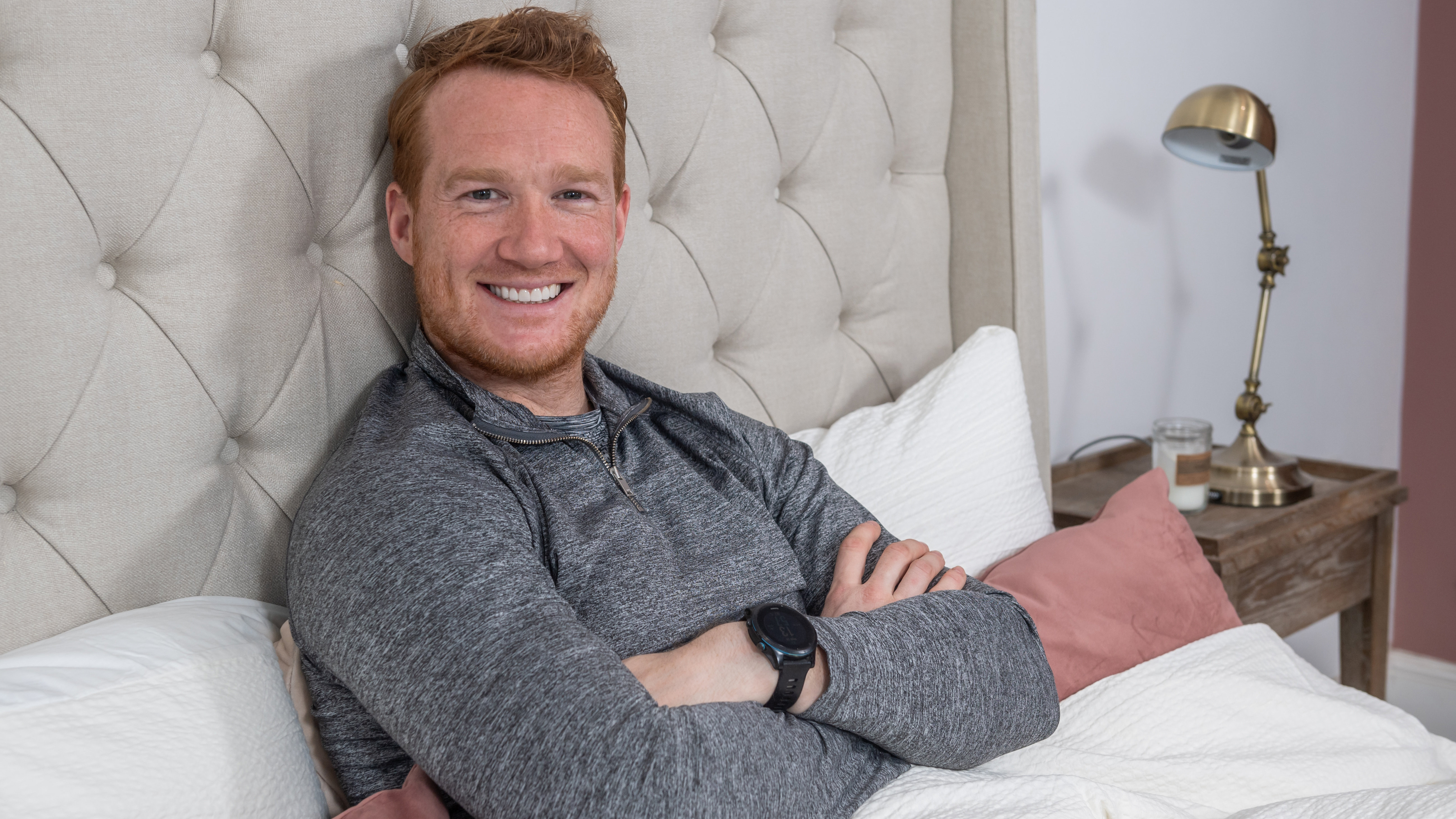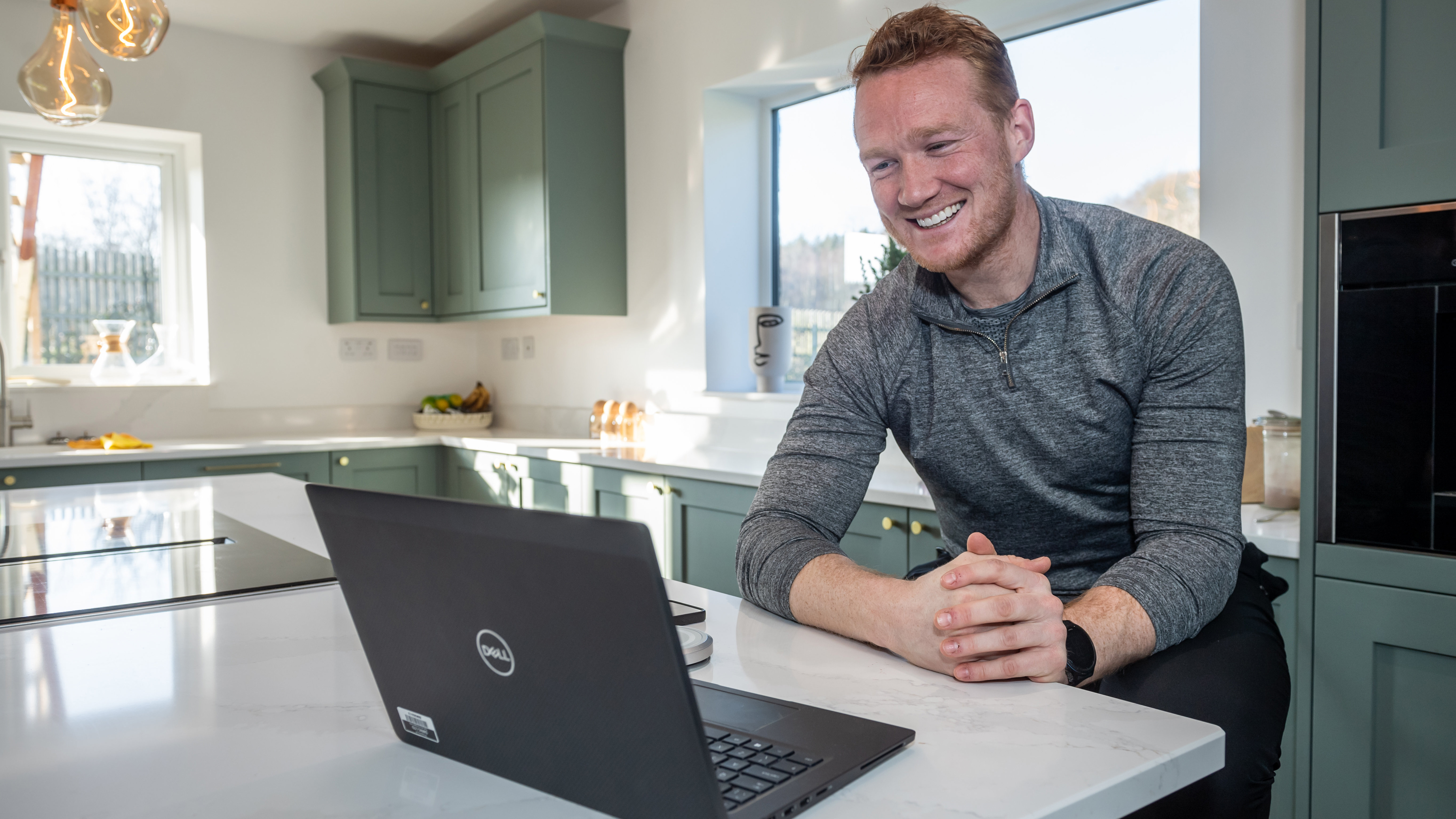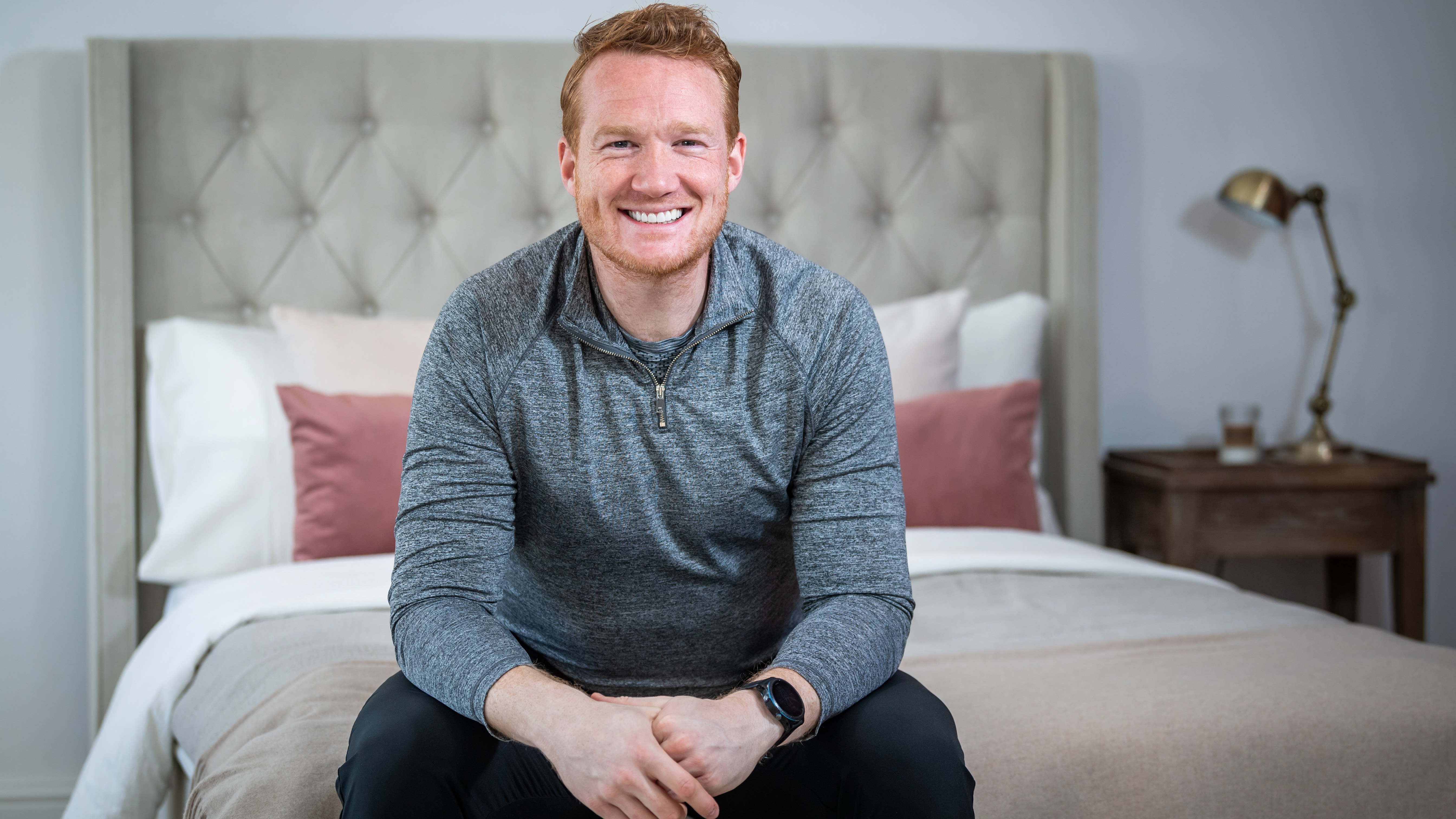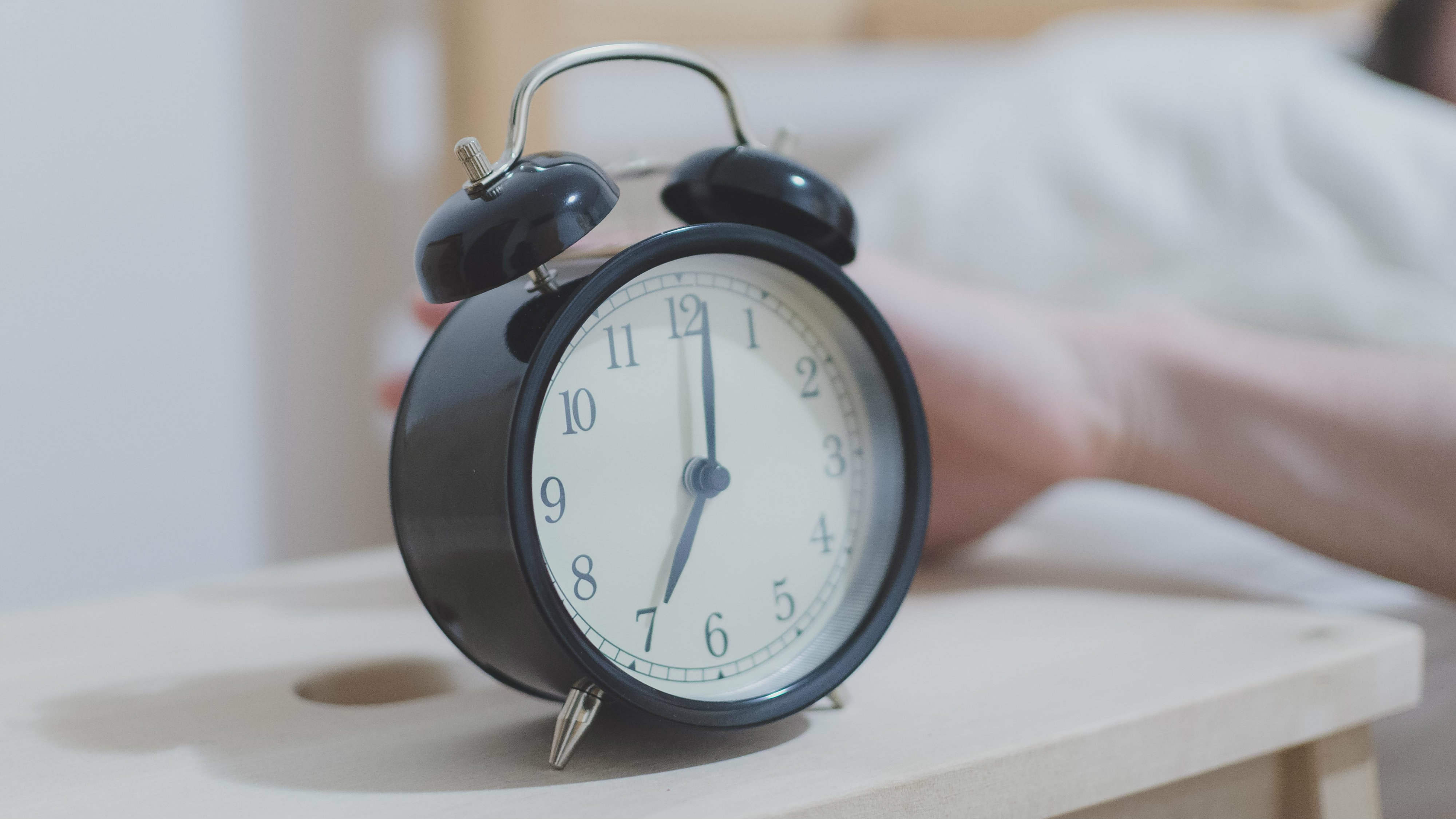How to sleep like an Olympic athlete: Greg Rutherford shares his best tips
We speak to Olympic athlete Greg Rutherford to find out how much sleep he needs to perform at his best

Sign up for breaking news, reviews, opinion, top tech deals, and more.
You are now subscribed
Your newsletter sign-up was successful
Olympic athlete Greg Rutherford MBE knows a thing or two about how to sleep better, because if he doesn’t, his performance takes a hit. “Sleep is our superpower. Without the correct amount of sleep, performance goes down, and that’s a fact for everybody,” Rutherford tells TechRadar.
“It’s very rare to come across an athlete who is able to train well and perform well if they are sleeping badly. And it takes years for some athletes to figure out what works for them and to get the right combination; the right number of hours’ sleep and the right routine.”
In fact, having a relaxing bedtime routine is something Rutherford feels strongly about. “A bedtime routine is an essential part of my evening - I call it my ‘reverse warm up’ and it follows a similar structure to my kids’ routines.”
Gold medalist Rutherford, a track and field athlete who specialised in long jump, and who joined the Team GB bobsleigh setup in 2021, is sharing his pro insight to coincide with new research by bed retailer Dreams into the sleep and bedtime habits of UK adults.
According to the survey (of 2,000 people aged 16-60+ in January 2022), 27% of respondents have no night-time routine, while the average person gets just five hours’ sleep a night. For context, the NHS recommends healthy adults to get between six and nine hours a night.
Key findings from the new Dreams sleep study:
- Brits spend a total of just 12 minutes on their sleep routine
- Over a third read a book as part of their bedtime routine
- 1 in 10 winds down with stretches or breathing exercises
- Over a quarter said they follow the same routine every evening
- 63% said that bedtime rituals have a positive impact on their sleep
- 8 in 10 said that a good night’s sleep improves their productivity
- 3 in 4 said poor sleep habits negatively affect their mental and physical health
- Over 55% admit they don’t get enough good quality sleep

“When you get it right, sleep is such a wonderful thing,” Rutherford says. “It’s very easy to start stressing about sleep, but with the right routine you can alleviate that stress, which is why routines are important."
Sign up for breaking news, reviews, opinion, top tech deals, and more.
Here Rutherford chats to TechRadar about his sleep needs and personal bedtime routine, and what sleep advice he has for young athletes coming up through the ranks right now.
What is your overall best sleep tip for others?
“Stay away from tech before bed. Find a book instead, because you can lose yourself in a book without experiencing any other stresses. Social media can be a wonderful thing, but equally it can be difficult.
“All it takes is one message or one post and your brain is fired up again. At night all you want to be thinking about is sleep; you don’t want to be thinking about what someone is saying to you online.
“You want to be able to go to bed at night and switch off to let your body heal and recover”
Greg Rutherford, Olympic athlete
“So something that I think is super important, especially for young athletes coming through now, is turning off your phone or putting it to one side and staying off social media for 45 minutes to an hour before bed. That’s a great way of switching off your mind.
“My other big sleep tip is pillow spray. I do it all the time for the kids but then I started using it myself and it really does help. When you spray it, it reminds your brain that it’s time for sleep. So yeah, no tech before bed and use a pillow spray.”
What does your bedtime routine involve?
“Part of my daily bedtime routine is having a hot bath or warm shower. It’s all about letting your body and your muscles relax and recover, and also because there’s nothing better than getting into a clean bed feeling clean.
“One of the worst things, I think, is walking into your bedroom to go to sleep but nothing is ready – your bed’s a mess, you need to tidy away clutter, or whatever it might be. So taking time to get your bedroom ready at some other point in the day is better for your sleep.
“You’re then setting yourself up to have a calm environment so that when you do go to bed, you can just get your head down.”

Is your mattress important to how well you sleep?
“Yes, and that’s the other really important thing here: finding the right mattress and the right pillow. We spend so much time in bed that you might as well enjoy it, because with that you’ll sleep better, and with better sleep you’re going to feel better and perform better the next day.
According to the survey, these are the most popular bedtime routine activities for Brits:
1. Brush teeth, 2. Change into pyjamas, 3. Wash face, 4. Take off glasses, 5. Set an alarm, 6. Read a book, 7. Start the routine at the same time every night, 8. Take off makeup, 9. Prep bedroom, 10. Floss, 11. Have a bath or shower, 12. Listen to music or a podcast, 13. Watch videos on phone, 14. Write a list for next day, 15. Stretch
“I’m a side sleeper and a heavy guy too – I weigh around 100kg since transferring to bobsleigh – so I have to find the right mattress or I won’t sleep well.
“I also travel the world with my pillow. It’s hypoallergenic and relatively low profile. I’m very fortunate to have travelled the world and seen some incredible places, but it hasn’t always been the most comfortable sleep.
“I remember being in the World Championships in 2015 for athletics. The world champs went really well for me but the bed at the hotel was just awful, so I went to a shop and bought a mattress topper and a new pillow and just invested in myself to have a good night’s sleep.”
How much sleep do you need to perform at your best?
“I aim to get at least eight hours if I can – that’s really on the money to help me feel refreshed – but the difficulty is that I have a nine month old baby and two other little children as well, and often dealing with leg ache in the middle of the night.
“I generally stay away from caffeine after 4pm… because I don’t want anything interrupting my sleep”
Greg Rutherford
“When I’m away it’s a chance to get a better night’s sleep, so I’ll aim for eight hours but if I can get more then fantastic, as it’s a chance to really let my body recover. And that’s the big thing: when you train hard and put your body under pressure, you need to recover.
“In the bobsleigh, when I was whizzing down St Moritz, for example, I was getting up to 4 or 5Gs worth of pressure being pushed through my body, so the body has to recover and the best way of doing that is to sleep.”
Do you go to bed at the same time each night?
“I try to, yes. I’m usually on my way to bed around 11 o’ clock so I can be up with the kids in the morning. We are creatures of habit, so if you can create a situation where your body gets used to certain things – for example, if by 11pm each night you are aiming to be in bed – your body gets used to that.
“Once you get these patterns going you will sleep better. Of course, life sometimes gets in the way and makes that more difficult, but if you are pretty consistent most evenings it will benefit your sleep.”

How do you sleep well before an event if you feel nervous?
“That was something I experienced in my early career. So those times when you’re struggling to sleep the night before a competition, the way we would approach it is to say, ‘Look, the night before you don’t get as much sleep as you would normally, but don’t stress about it too much as long as you’ve been sleeping in the lead up.
Listening to relaxing music: “If I know I might not be able to switch off easily, I try to listen to some relaxing music until I drift off.”
Reading a book: “This helps me unwind but I’ve got a stack next to my bed which I’m yet to finish!”
“Effectively you take away the stress element of sleep. It’s hard when you’re lying there thinking about what could happen during the event, but with experience you learn to switch that off and take solace in knowing what you’ve done; the training, the hard work and everything else.
“That is going to set you up for a good performance the following day. And again, stick to your normal sleep patterns because your body will naturally want to switch off and recover.”
Do you eat any specific foods to help you sleep?
“I drink a lot of caffeine during the day, but I generally stay away from caffeine after 4pm. That’s because I don’t want anything interrupting my sleep and potentially stimulating my body at night.
“I’m not too concerned with any foods in particular though, as long as I stay away from anything that has any kind of natural stimulant in it.”
What about sleep tracking tech? Do you use it?
“As a professional athlete, yes it’s good to monitor things like sleep, but you have to learn to not obsess about it too. So I have bought smartwatches and things like that but I try not to obsess.
“At times I might check my watch, but generally I stick to the sleep patterns and routines that work for me. When I wake up I know if I’ve had enough sleep or not. And if I feel like I haven’t had enough, I’ll make an effort to go to sleep a bit earlier the following night to make up for it.
“Lack of sleep is a problem even if you’re not involved in sport, but if you’re trying to help your body recover and get ready to perform at the highest level in professional sport, it really does knock you for six.”
Read more:
- The best sleep trackers for every budget
- Drift off with the a relaxing sleep app

Claire is a Sleep Editor and Certified Sleep Science Coach for our sister website Tom's Guide, and is the go-to person for getting great product recommendations for better sleep. As an expert mattress reviewer, Claire has tested memory foam and hybrid mattresses from a range of top-rated brands, and has extensive experience of testing bedding too. Claire regularly speaks to certified sleep specialists, such as chartered psychologists and doctors of sleep medicine, to stay on top of the research and techniques that can help you enjoy better quality sleep, and she speaks with industry specialists about the latest mattress trends and new releases. Before delving into the world of sleep, Claire was Health & Wellness Editor at Top Ten Reviews, and before that a Senior Content Editor at T3. Having suffered with insomnia for years, Claire knows how much of a difference a good night's sleep can make and is passionate about helping others to sleep better too.